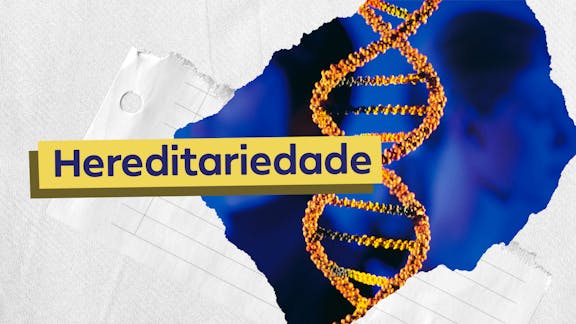Questão 37c61c44-9c
Prova:UEMG 2022
Disciplina:Inglês
Assunto:Pronome demonstrativo | Demonstrative pronoun, Pronome objetivo | Objective pronoun, Pronome possessivo substantivo | Possessive pronoun, Pronomes | Pronouns
Concerning the excerpt: “Critics haven’t been
kind to Adam McKay’s eco-satire, but many
climate experts are lauding it”, and the
context it was taken from, mark the correct
option regarding the usage of the pronoun
“it”.
Concerning the excerpt: “Critics haven’t been
kind to Adam McKay’s eco-satire, but many
climate experts are lauding it”, and the
context it was taken from, mark the correct
option regarding the usage of the pronoun
“it”.
Don’t Look Up: four climate experts on the
polarising disaster film
Critics haven’t been kind to Adam
McKay’s eco-satire, but many climate experts are
lauding it. Here four give their views Rarely has a film been as divisive as
Adam McKay’s climate satire Don’t Look Up.
Although it has been watched by millions, and is
already Netflix’s third most watched film ever, the
response from critics was largely negative. Many
found its story of scientists who discover an
asteroid heading for Earth a clumsy allegory for
the climate crisis, while others just found it
boring. But many in the climate movement
have praised the film, and audience reviews have
been generally positive.
We asked four climate experts to give
their views on the film. Warning: spoilers ahead.
Ketan Joshi: ‘The main character of
the climate crisis is absent’
[…]
Fiona Harvey: ‘The role of the technoloon, played by Mark Rylance, struck a chord’
[…]
After 17 years of reporting on the climate
crisis, I doubted at first that the film had much to
tell me about the frustrations of communicating a
hypothetical catastrophe. As the film’s scientists
first struggled to clothe their data in sober,
measured terms, then broke into swearing, armwaving shrieks about provable imminent
apocalypse, I nodded along. Yes, that’s what it
feels like, and no, no one listens, not until it is too
late.
Yet it was illuminating in unexpected ways
– something I’ve always struggled with is how
rational people can fail to grasp the scale of
climate breakdown, how we could leave it so late.
As the film shows, it’s partly because vested
interests keep it that way, but it’s also just
because we’re human. Believing in disaster
before it strikes is fundamentally not how we
work. The role of the techno-loon, played by
Mark Rylance, struck another chord. Cop26 was
not a failure, though on the surface that was the
obvious conclusion – it was more nuanced than
that. Soon after the Cop26 circus left Glasgow,
the danger of painting the outcome in such blackand-white terms became apparent, as wellmeaning experts concluded – in all seriousness –
as talking didn’t work, our best hope would be for
billionaires to bypass the UN and geoengineer
the climate from space. Because obviously the
answer to a vast uncontrolled experiment on the
atmosphere is to conduct a vast uncontrolled
experiment on the atmosphere.
[…]
Nina Lakhani: ‘Jennifer Lawrence’s
character will resonate with many female
climate scientists’ […]
How Kate Dibiasky, the postgraduate
student played by Jennifer Lawrence who
discovered the comet, is portrayed as an
unhinged hysterical woman, will resonate with
many female climate scientists and activists
whose crucial knowledge has been sidelined.
The scene where her parents declare that they’re
in favour of the jobs the comet will provide will
resonate with millions of people, including me,
trying to deal with relatives who have bought into
political lies. […]
Damian Carrington: ‘It highlights the
absurdity of staring disaster in the face, then
looking away’
I loved Don’t Look Up, both as an
entertainment and as a climate crisis parable. But
the movie has been panned by many critics, with
the main charge being that it is heavy-handed,
blunt and too obvious. But that is exactly the
point.
Scientists have been issuing blunt
warnings about obvious dangers of global
heating for years and have been ignored –
carbon emissions are still rising. The film
perfectly skewers the key ways in which they
have been ignored: for short-term political
expediency and short-term corporate profit.
In particular, the movie beautifully
portrays the incredulity of scientists that their
carefully constructed evidence can be dismissed
with bluster such as “we’ll sit tight and assess” by
leaders more concerned about today’s political
weather and a media more interested in the
minutiae of celebrities’ lives.
[…] The point of the film is savagely
highlighting the absurdity of staring disaster in
the face, then looking away rather than acting. In
that respect, it is a triumph.
Source: https://www.theguardian.com/film/2022/jan/08/dont-look-upfour-climate-experts-on-the-polarising-disaster-film. Access:
08/01/2022.
Don’t Look Up: four climate experts on the
polarising disaster film
Critics haven’t been kind to Adam
McKay’s eco-satire, but many climate experts are
lauding it. Here four give their views
Rarely has a film been as divisive as
Adam McKay’s climate satire Don’t Look Up.
Although it has been watched by millions, and is
already Netflix’s third most watched film ever, the
response from critics was largely negative. Many
found its story of scientists who discover an
asteroid heading for Earth a clumsy allegory for
the climate crisis, while others just found it
boring. But many in the climate movement
have praised the film, and audience reviews have
been generally positive.
We asked four climate experts to give
their views on the film. Warning: spoilers ahead.
Ketan Joshi: ‘The main character of
the climate crisis is absent’
[…]
Fiona Harvey: ‘The role of the technoloon, played by Mark Rylance, struck a chord’
[…]
After 17 years of reporting on the climate
crisis, I doubted at first that the film had much to
tell me about the frustrations of communicating a
hypothetical catastrophe. As the film’s scientists
first struggled to clothe their data in sober,
measured terms, then broke into swearing, armwaving shrieks about provable imminent
apocalypse, I nodded along. Yes, that’s what it
feels like, and no, no one listens, not until it is too
late.
Yet it was illuminating in unexpected ways
– something I’ve always struggled with is how
rational people can fail to grasp the scale of
climate breakdown, how we could leave it so late.
As the film shows, it’s partly because vested
interests keep it that way, but it’s also just
because we’re human. Believing in disaster
before it strikes is fundamentally not how we
work.
The role of the techno-loon, played by
Mark Rylance, struck another chord. Cop26 was
not a failure, though on the surface that was the
obvious conclusion – it was more nuanced than
that. Soon after the Cop26 circus left Glasgow,
the danger of painting the outcome in such blackand-white terms became apparent, as wellmeaning experts concluded – in all seriousness –
as talking didn’t work, our best hope would be for
billionaires to bypass the UN and geoengineer
the climate from space. Because obviously the
answer to a vast uncontrolled experiment on the
atmosphere is to conduct a vast uncontrolled
experiment on the atmosphere.
[…]
Nina Lakhani: ‘Jennifer Lawrence’s
character will resonate with many female
climate scientists’
[…]
How Kate Dibiasky, the postgraduate
student played by Jennifer Lawrence who
discovered the comet, is portrayed as an
unhinged hysterical woman, will resonate with
many female climate scientists and activists
whose crucial knowledge has been sidelined.
The scene where her parents declare that they’re
in favour of the jobs the comet will provide will
resonate with millions of people, including me,
trying to deal with relatives who have bought into
political lies.
[…]
Damian Carrington: ‘It highlights the
absurdity of staring disaster in the face, then
looking away’
I loved Don’t Look Up, both as an
entertainment and as a climate crisis parable. But
the movie has been panned by many critics, with
the main charge being that it is heavy-handed,
blunt and too obvious. But that is exactly the
point.
Scientists have been issuing blunt
warnings about obvious dangers of global
heating for years and have been ignored –
carbon emissions are still rising. The film
perfectly skewers the key ways in which they
have been ignored: for short-term political
expediency and short-term corporate profit.
In particular, the movie beautifully
portrays the incredulity of scientists that their
carefully constructed evidence can be dismissed
with bluster such as “we’ll sit tight and assess” by
leaders more concerned about today’s political
weather and a media more interested in the
minutiae of celebrities’ lives.
[…]
The point of the film is savagely
highlighting the absurdity of staring disaster in
the face, then looking away rather than acting. In
that respect, it is a triumph.
Source: https://www.theguardian.com/film/2022/jan/08/dont-look-upfour-climate-experts-on-the-polarising-disaster-film. Access:
08/01/2022.
A
“It” is an object pronoun that refers back to
“Adam McKay”.
B
“It” is an object pronoun that refers back to
“Adam McKay’s eco-satire”.
C
“It” is a possessive pronoun that refers to
“Adam McKay’s eco-satire Don’t look up”.
D
“It” is a demonstrative pronoun that refers
back to “Adam McKay’s eco-satire”.
Estatísticas
Aulas sobre o assunto
- •
Passado perfeito progressivo | Past perfect continuous
Tempos Verbais | Verb Tenses
2 aulas
Passado perfeito | Past perfect
Tempos Verbais | Verb Tenses
2 aulas
Passado progressivo | Past continuous
Tempos Verbais | Verb Tenses
1 aulas
Presente simples | Simple present
Tempos Verbais | Verb Tenses
2 aulas
Presente progressivo | Present continuous
Tempos Verbais | Verb Tenses
2 aulas
Passado simples | Simple past
Tempos Verbais | Verb Tenses
2 aulas
Futuro simples | Simple future
Tempos Verbais | Verb Tenses
3 aulas
Futuro progressivo | Future continuous
Tempos Verbais | Verb Tenses
2 aulas
Futuro perfeito | Future perfect
Tempos Verbais | Verb Tenses
1 aulas
Presente perfeito | Present perfect
Tempos Verbais | Verb Tenses
3 aulas
Presente perfeito progressivo | Present perfect continuous
Tempos Verbais | Verb Tenses
2 aulas
Futuro perfeito progressivo | Future perfect continuous
Tempos Verbais | Verb Tenses
1 aulas
Artigos definido e indefinidos | Definite and indefinite articles
Determinantes e quantificadores | Determiners and quantifiers
2 aulas
Quantificadores | Quantifiers
Determinantes e quantificadores | Determiners and quantifiers
2 aulas
Distributivos | Distributives
Determinantes e quantificadores | Determiners and quantifiers
2 aulas
Palavras de diferenciação | Difference Words
Determinantes e quantificadores | Determiners and quantifiers
1 aulas
Conjugação verbal | Verb conjugation
Verbos | Verbs
2 aulas
Formas nominais | Nominal forms
Verbos | Verbs
6 aulas
Verbos modais | Modal verbs
Verbos | Verbs
6 aulas
Verbos frasais | Phrasal verbs
Vocabulário | Vocabulary
3 aulas
Prefixos e sufixos | Prefixes and suffixes
Vocabulário | Vocabulary
3 aulas
Formação de palavras | Word formation
Vocabulário | Vocabulary
3 aulas
Palavras cognatas | Cognate words
Vocabulário | Vocabulary
3 aulas
Expressões Idiomáticas | Idioms and Fixed Expressions
Vocabulário | Vocabulary
3 aulas
Oposto | Opposite
Adjetivos | Adjectives
2 aulas
Adjetivos: definição e características | Adjectives: definition and characteristics
Adjetivos | Adjectives
1 aulas
Grau dos adjetivos | Adjective degrees
Adjetivos | Adjectives
1 aulas
Substantivos contáveis e incontáveis | Countable and uncountable
Substantivos: definição e tipos | Nouns: definition and types
2 aulas
Plural dos Substantivos | Regular and Irregular Plural Nouns
Substantivos: definição e tipos | Nouns: definition and types
2 aulas
Orações condicionais | Conditional Clauses
Interpretação de texto | Reading comprehension
6 aulas
Discurso direto e indireto | Reported speech
Interpretação de texto | Reading comprehension
4 aulas
Organização textual | Text organization
Interpretação de texto | Reading comprehension
4 aulas
Palavras-chaves | Key words
Interpretação de texto | Reading comprehension
3 aulas
Figuras de Linguagem | Figure of Speech
Interpretação de texto | Reading comprehension
3 aulas
Estratégias de interpretação | Reading comprehension strategies
Interpretação de texto | Reading comprehension
6 aulas
Estrutura de frases | Sentence structure
Interpretação de texto | Reading comprehension
2 aulas
Posição dos advérbios | Position of adverbs
Advérbios
2 aulas
Tipos de advérbios | Types of adverbs
Advérbios
2 aulas
Advérbios: definição e usos | Adverbs: definition and uses
Advérbios
2 aulas
Pronomes Possessivos Adjetivos| Possessive pronouns adjectives
Pronomes | Pronouns
1 aulas
Pronome demonstrativo | Demonstrative pronoun
Pronomes | Pronouns
1 aulas
Pronome indefinido | Indefinite Pronouns
Pronomes | Pronouns
1 aulas
Pronome possessivo substantivo | Possessive pronoun
Pronomes | Pronouns
1 aulas
Pronome reflexivo | Reflexive Pronoun
Pronomes | Pronouns
2 aulas
Pronomes interrogativos | Question words
Pronomes | Pronouns
1 aulas
Orações Relativas e pronomes relativos | Relative clauses and relative pronouns
Pronomes | Pronouns
2 aulas
Pronomes pessoais | Personal pronouns
Pronomes | Pronouns
2 aulas
Conjunções
2 aulas
Adjetivos | Adjectives
4 aulas
Tempos Verbais | Verb Tenses
23 aulas
Tradução | Translation
2 aulas
Tag questions
1 aulas
Substantivos: definição e tipos | Nouns: definition and types
4 aulas
Interpretação de texto | Reading comprehension
28 aulas
Verbos | Verbs
14 aulas
Determinantes e quantificadores | Determiners and quantifiers
7 aulas
Vocabulário | Vocabulary
15 aulas
Caso genitivo | Genitive case
1 aulas
Aspectos linguísticos | Linguistic aspects
4 aulas
Sinônimos | Synonyms
3 aulas
Pronomes | Pronouns
11 aulas
Preposições | Prepositions
2 aulas
Análise sintática | Syntax Parsing
7 aulas
Advérbios
6 aulas






